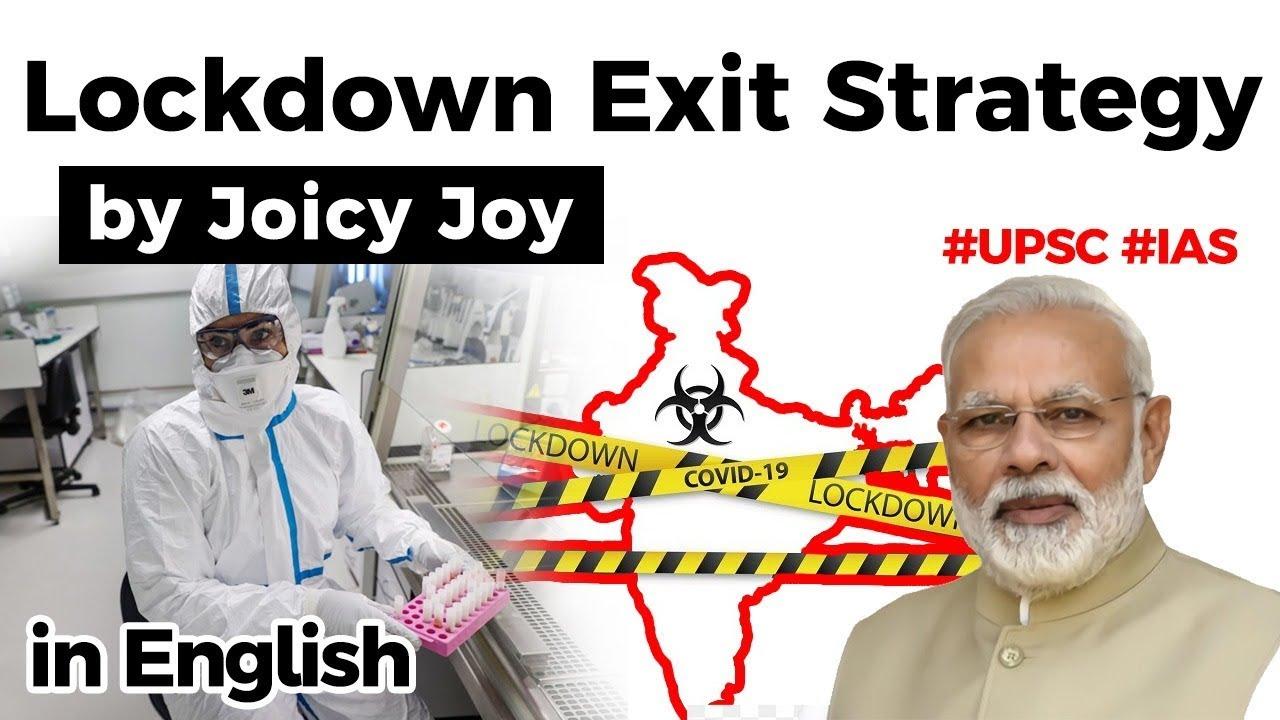Table of Contents
CURRENT AFFAIR
- Recently, the Prime Minister of India has held a video conference with the Chief Ministers of the States on tackling the Covid-19 pandemic.
- He emphasised on the importance of formulating a common exit strategy to ensure a steady re-emergence of the population after the lockdown is over.
SUGGESTIONS
- Seamless supply lines for medical equipment and drugs and raw materials.
- Coordinated and prioritised testing, tracing, isolation and quarantine among and in all states.
- Appointment of district-level disease surveillance officers
- Ensuring that there are separate hospitals for Covid-19 patients and proper protection to the doctors attending the patients.
- Speedy online training of doctors in the treatment of Covid-19.
- Going beyond the route of Agricultural Produce Marketing Corporations (APMC) for the procurement of this season’s harvest.
- Using the amount from the State Disaster Response Fund (SDRF) to fight COVID-19. The Centre will release ₹11,000 crore from the SDRF by the end of April.
- Rapid disbursement of grants under the Pradhan Mantri Gareeb Kalyan Yojana.
- Recruitment of volunteers from the National Cadet Corps (NCC) and the National Service Scheme (NSS) in the effort to combat the crisis.
- Coordination between NGOs and crisis management groups and sharing of strategies.
- Promotion and use of traditional immunity boosting methods mentioned in Ayurveda to minimise the number of people with weak immunity.
Scientists on Lockdown
- Lockdown is only a temporary solution and this period should be used to prepare the healthcare system to avoid its social costs and to realise long-term epidemiological benefits.
- The government needs to reveal a post-lockdown plan.
- Social distancing and better hygiene are helpful yet insufficient measures by themselves.
- If the lockdown period will not be used responsibly, it might lead to a possible bounce-back effect.
- The current restricted testing-policy creates the risk that a large number of mildly symptomatic or asymptomatic cases will remain undetected even at the end of the lockdown period.
- These cases could easily serve as the nucleus for the epidemic to bounce back.
- The problem of reverse migration (from cities to sub-urban/rural areas) has also been highlighted. The exodus triggered by the lockdown will rapidly spread the virus to all parts of the country.
- This can lead to both an epidemiological and a humanitarian crisis.
- Instead of stopping the reverse migration, the forces should be used to stock up food-grains, ensure fast cash transfers for the food-security and welfare of workers.
New Developments
- Alternative Sealant
- The Defence Research and Development Organisation (DRDO) has developed a special sealant as an alternative to seam sealing tape which is critical in Personal Protective Equipment (PPE).
- The alternative sealant is based on the sealant used in submarine applications.
- DRDO can mass produce this glue through the industry to support the seam sealing activity by suit manufacturers.
- Bio Suit
- DRDO has also developed a bio suit to keep medical and other personnel safe from the virus.
- Scientists developed it with the help of the industry at various DRDO laboratories by applying the technical know-how and expertise in textile, coating and nanotechnology.
- It has been subjected to rigorous testing for textile parameters as well as protection against synthetic blood.
- Handheld InfraRed Temperature Sensor
- Naval Dockyard, Mumbai, has designed and developed its own handheld InfraRed (IR) based temperature sensor for screening people at its entry gates.
- The instrument has been manufactured through in-house resources at a cost of under ₹1000.
- Less than the cost of the temperature guns in the market.
Latest Burning Issues | Free PDF






















 WhatsApp
WhatsApp